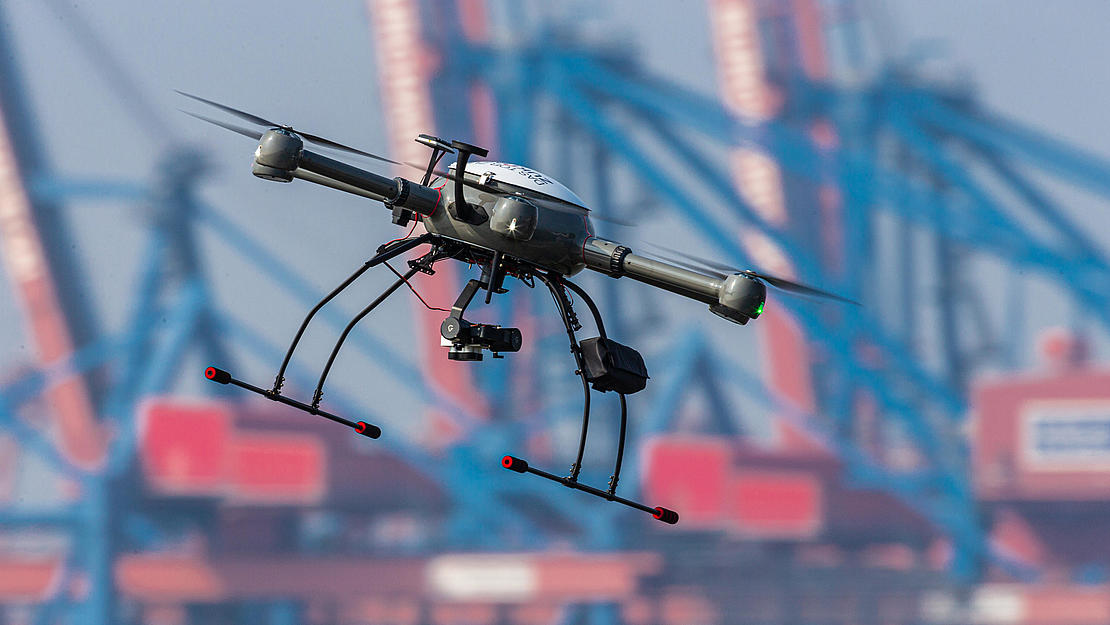16.12.2022
Germany could become a pioneer of the drone economy
Lars Neumann, Director of Logistics at Hamburger Hafen und Logistik AG (HHLA), used Parliamentary Evening on 15 December in Berlin to advocate for the speedy regulation of U-spaces: “If industry, science and politics all work together, drones could become game-changers and trigger a completely new economic dynamic.”

Germany is already home to leading drone and technology experts. In order for the German drone economy to also be competitive on an international scale, it still needs the political and regulatory framework to be established.
“Germany as a business location is currently one of the pioneers in terms of drone technology due to innovative companies such as HHLA Sky and will benefit in particular from U-spaces,” says Lars Neumann, Director of Logistics at HHLA. “If industry, science and politics continue to work together here, drones could become game-changers and trigger a completely new economic dynamic. We now have the opportunity to become a global pioneer.”
U-spaces ensure the safe, efficient use of drones in a defined geographical area, also in combination with manned aviation. The idea is one of strategic conflict management, which schedules the approval of flights and makes the various users of the airspace visible to one another. Neumann emphasises that U-spaces would promote the growth of the highly innovative drone economy, still in its infancy, would make aviation safer and also increase societal acceptance for unmanned flights. In terms of the upcoming statutory regulation process, much can be learned from the UDVeo and LUV projects, both funded by the German Federal Ministry of Transport and Digital Infrastructure (BMDV).

The urban diversity of Hamburg with its port and airport, various transport routes and neighbouring agricultural spaces will make a challenging environment in which to test out the drone economy. The management of a potential future U-space has already been tested in practice under these conditions.
“For such an innovative area as U-spaces and unmanned flight, we will need plenty of space and scope for experimenting in which technologies and applications can be tested safely and developed. The Port of Hamburg is predestined for this,” Neumann continues.
In recent years, Hamburg has become a centre for unmanned aviation – also thanks to the support of the federal ministries and the Hamburg Senate. The partnership of numerous innovative companies such as HHLA Sky in various projects, real laboratories and initiatives (such as UDVeo and LUV) has resulted in a ecosystem that is unique in Germany and pioneering at an international level.
HHLA Sky employee Sebastian Törsleff explains how U-spaces can be coordinated in an interview: